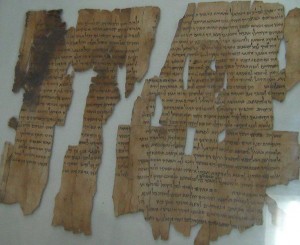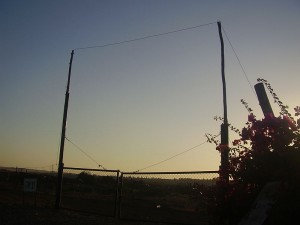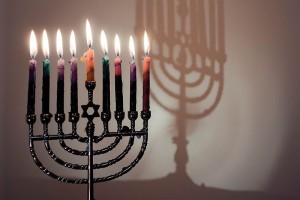Canonical History and the Questions of Bible and Biblical
The Perspective of Ancient Judaism
(From a paper presented in Landau, Germany)
 This brief statement intends to attack the Bible and its canon in totally Jewish terms. We hope in this way to facilitate a realization of the extent to which the academic discussion of these issues has been conditioned by fundamentally Christian terms, definitions and issues, or by objective academic language that, while welcome, does not represent Judaism in its own light. Let’s save time and call this: “Reclaiming the Jewish Bible”—the title of a book I should probably write.
This brief statement intends to attack the Bible and its canon in totally Jewish terms. We hope in this way to facilitate a realization of the extent to which the academic discussion of these issues has been conditioned by fundamentally Christian terms, definitions and issues, or by objective academic language that, while welcome, does not represent Judaism in its own light. Let’s save time and call this: “Reclaiming the Jewish Bible”—the title of a book I should probably write.
It’s not that Bible isn’t a Jewish term; it is. Ha-sefarim in Dan. 9:2 is translated as en tois biblois, and this is the origin of the term Bible, ta biblia. Judaism, in all its manifestations, has accepted the notion of a set of books that were authoritative. These are books that were believed to emerge from the experience of divine revelation: direct for the Torah; less direct for the Prophets, and indirect for the Writings. To be authoritative, a book must be believed to be divinely inspired in some way. Because they were not seen as authoritative, over twenty… Continue reading
Eruv and Sectarianism in Ancient Judaism: Conclusion

Eruv, Avnei Eitan, Golan Heights. Courtesy of http://commons.wikimedia.org/wiki/File:TzuratHapetach.JPG
We have attempted to show here that with the help of the Dead Sea Scrolls and rabbinic literature we can understand clearly that the priestly, sectarian trend of Jewish law followed by the Dead Sea Scrolls sectarians and a variety of others prohibited carrying on the Sabbath, but did not employ the device of eruv to mitigate the difficulty of this prohibition. Because such an institution is dependent on the rabbinic oral law concept, it could therefore not have existed among the various sectarian groups. We do not know if it did in fact exist among the early Pharisees. We continue to see eruv as an innovation of the Pharisaic-rabbinic tradition, dependent as it is on the recognition that besides the public and private domains there are other types of domains as well. Eruv physically creates an intermediate domain, a karmelit, and then converts it through the collection of common bread, into a private domain. Even if the extension of the home that constitutes the basis of the rabbinic eruv did derive from some sectarian usage, the rabbis should be given the credit for establishing the institution of eruv to make… Continue reading
The Maccabean Revolt
YU Torah Online has published Chanuka To Go 5773, containing 15 articles on different aspects of the holiday of Chanukah. The entire booklet can be downloaded free, and individual articles can be downloaded as well. My contribution to the booklet is an article entitled, “The Maccabean Revolt: What Really Happened.” I describe the history and background of the revolt and its aftermath, all in 4 pages.

